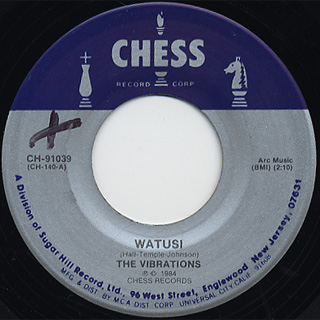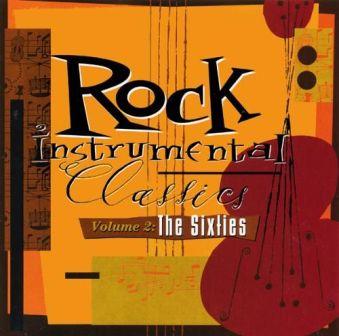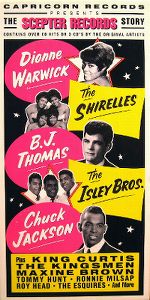I note with sorrow that some of the links I posted in May are already gone. That’s YouTube, your favourite videos disappear. It’s that Jackson Browne song, Two Of Me, Two Of You, whose disappearance saddens me most.
So the object lesson is this: catch them while you’ve got the chance. You won’t be sorry. Or you will, but I won’t know about it, unless you tell me.
In case you missed May:
You Never Know Who’s Listening.
·
Van Morrison: Real Real Gone – After rediscovering this and hearing it a few times I was struck by the obvious: this is basically a rewrite of Bright Side Of The Road. No matter – Van the Man can rewrite the same song hundreds of times, and I’ll be happy to listen to it every time.
·
Cher: You’d Better Sit Down Kids – There are a billion gazillion quintillion nonillion wadillion smillion farillion breakup songs, but how many take the kids into account? (Forget Tammy Wynette for a minute, she’s country anyway). Sonny was breaking new ground with this. Odd that he gave it to Cher to do solo; perhaps he felt that his vocal limitations would prevent the song from reaching its emotional potential (though later he did a solo version on a Sonny & Cher album, and he acquitted himself very well).
·
Loudon Wainwright III: Your Mother And I – Poetry to Sonny’s journalism.
·
Burton Cummings: I Will Play A Rhapsody – Back in Winnipeg I knew people who had known Burton Cummings, he went to St. John’s High, the same school my parents went to, and everyone agrees that he was an arrogant SOB. Perhaps. I just know that he is an incredible musical personality, and I don’t know that he’s gotten his due. The original of this, with the harmonies on “I,” is breathtaking, but watching him play it solo is plenty inspiring.
·
Bobby Darin: Reason To Believe – The incredible technology that gives us the confluence of social networking and YouTube life-sharing used here to present the worst flaws of analog sound reproduction. Matter meets anti-matter.
·
"Frankie Valli & The Four Seasons": Grease – Let me start by saying that there was never a group called “Frankie Valli & The Four Seasons.” The group in question was simply The Four Seasons, or The 4 Seasons, or, on record labels, “The Four Seasons featuring the sound of Frankie Valli.” The original members, of course, have long since scattered to the four winds, (is that a group?), and what we have here is obviously a new ensemble, hired for the occasion, who, judging by their appearance on stage, ought to be called The 42 Seasons. (The odd thing is that for much of its existence, The 4 Seasons were a quintet.) It doesn’t matter, because Grease was a solo hit for Frankie Valli, and I don’t know what skating has to do with anything, but these Tribute On Ice videos are great fun.
·
The Move: The Girl Outside – Never heard of The Move? Seeds of ELO – Roy Wood, drummer Bev Bevan, later Jeff Lynne. Think of The Beatles, The Move took that kind of pop to its extreme. The Girl Outside is stylistically Eleanor Rigby in excelsis, lyrically it’s more real life than we’d like to admit.
·
The Rolling Stones: Love In Vain – The Stones have done ballads that are sweeter, and some that are raunchier, but none more poignant then this rendition of alleged soul-vendor Robert Johnson’s tale of alienation. Everything extraneous is removed, they strip it down to its bare essence, and create a moment of power and beauty. The original on Let It Bleed is best, but watching Ron Wood play slide is one of life’s small pleasures.
·
Van Morrison: Days Like This – To quote myself: “I love the way Van Morrison uses a horn section and the way he uses his voice, and the way he uses them together. I love the way that he’s made a career out of singing songs of joy and happiness, (when he’s not whining about being rich and famous) without ever sacrificing his artistic integrity. He may be a miserable man (so I’ve heard, lawyers keep away please) but his music reaches a place in my heart that surprises me every time. … I like the black and white, and I love the way that he is twice the age of anyone else in the band and how little it matters.”
·
Patti Smith: In Excelsis Deo: Gloria – When all is said and done, this may be Van Morrison’s finest moment.
·
The Traveling Wilburies: End Of The Line – One of my kids graduated from Green Acres High, where Jim Crow is alive and well, and sitting through the proceedings I don’t know if I

ever felt more alienated. I walked out of there wondering, among other things, who I’ve become, who I’ve been, wondering whether it’s me that’s gone off the rails or everyone else, and I walked home listening to The Traveling Wilburies, because that's what I happened to have with me. And this song came on, and it told me stuff I needed to hear at that exact moment, and the exuberance of it carried me home; my feet barely touched the ground and anyone who happened to see me was confirmed in his, or her, opinion of my eccentricity. Once again, it is the plebian pleasure of pop music that gives me the perspective I need, just when I need it...
(Rest in peace, Roy Orbison, George Harrison...)
 Judging by the popularity of Oasis, the best thing that happened to the 90s was the 60s. And judging by the popularity of Kenny Ball, the best thing that happened to the 60s was the 30s. Retro has become retro.
Judging by the popularity of Oasis, the best thing that happened to the 90s was the 60s. And judging by the popularity of Kenny Ball, the best thing that happened to the 60s was the 30s. Retro has become retro. I have other stuff to write today. You’ll have to figure out The Vibrations on your own. Good luck.
I have other stuff to write today. You’ll have to figure out The Vibrations on your own. Good luck. When I hear Eric Clapton, I know that it’s Clapton, just from the style and sound of the guitar. Same is true (with appropriate adjustment for identity) of Carlos Santana, Roger McGuinn, James Taylor, Jimi Hendrix, Robbie Robertson. At the same time, there are hundreds, nay thousands, of world class guitarists whom I would not know without a program: Randy Bachman, Steve Howe, Keith Richards, Pete Townshend. Even Alvin Lee, he had speed and he had style, but I’m not sure that he was (is?) distinctive enough to be recognized without album credits.
When I hear Eric Clapton, I know that it’s Clapton, just from the style and sound of the guitar. Same is true (with appropriate adjustment for identity) of Carlos Santana, Roger McGuinn, James Taylor, Jimi Hendrix, Robbie Robertson. At the same time, there are hundreds, nay thousands, of world class guitarists whom I would not know without a program: Randy Bachman, Steve Howe, Keith Richards, Pete Townshend. Even Alvin Lee, he had speed and he had style, but I’m not sure that he was (is?) distinctive enough to be recognized without album credits. So how many female drummers can you name? OK, Karen Carpenter, easy. Maureen Tucker, also good. Ever hear of Claire Lane? Founder of (and drummer for) the Ramrods. Remember that for your next trivia evening.
So how many female drummers can you name? OK, Karen Carpenter, easy. Maureen Tucker, also good. Ever hear of Claire Lane? Founder of (and drummer for) the Ramrods. Remember that for your next trivia evening. I have a friend who lives down in South Carolina and to her “beach music” is as natural as breathing. To me it’s mystery. I listen to what they call “beach music” and I hear middle of the road R & B. So I found an internet radio station that plays beach music all day, I had it on last Friday, all day. I’d been listening to Chuck Jackson the night before and when the DJ said “send in your requests!” I sent off an email saying hey! It’s Canada Day down here and I’m working. Can you play some Chuck Jackson? and lo and behold, not only did he play Chuck Jackson, but he said “This is for David up in Canada where they are observing Canada Day, formerly known as Dominion Day!” (Now how did he know that?) And he went and played a song called C’est Si Bon. I guess he figures we’re all French up here.
I have a friend who lives down in South Carolina and to her “beach music” is as natural as breathing. To me it’s mystery. I listen to what they call “beach music” and I hear middle of the road R & B. So I found an internet radio station that plays beach music all day, I had it on last Friday, all day. I’d been listening to Chuck Jackson the night before and when the DJ said “send in your requests!” I sent off an email saying hey! It’s Canada Day down here and I’m working. Can you play some Chuck Jackson? and lo and behold, not only did he play Chuck Jackson, but he said “This is for David up in Canada where they are observing Canada Day, formerly known as Dominion Day!” (Now how did he know that?) And he went and played a song called C’est Si Bon. I guess he figures we’re all French up here. Record labels, collectors take them very seriously. To dilettantes like me they are a matter of curiosity and historical interest. Some have distinct musical styles; Motown comes to mind obviously, and there was the gutbucket soul of Stax, teen pop of Dot, Atlantic soul and Atlantic jazz. The Beatles were on Capital, and so were a number of British invasion bands, so we got to identify those swirling colours on the label with Merseybeat.
Record labels, collectors take them very seriously. To dilettantes like me they are a matter of curiosity and historical interest. Some have distinct musical styles; Motown comes to mind obviously, and there was the gutbucket soul of Stax, teen pop of Dot, Atlantic soul and Atlantic jazz. The Beatles were on Capital, and so were a number of British invasion bands, so we got to identify those swirling colours on the label with Merseybeat. •
• 

